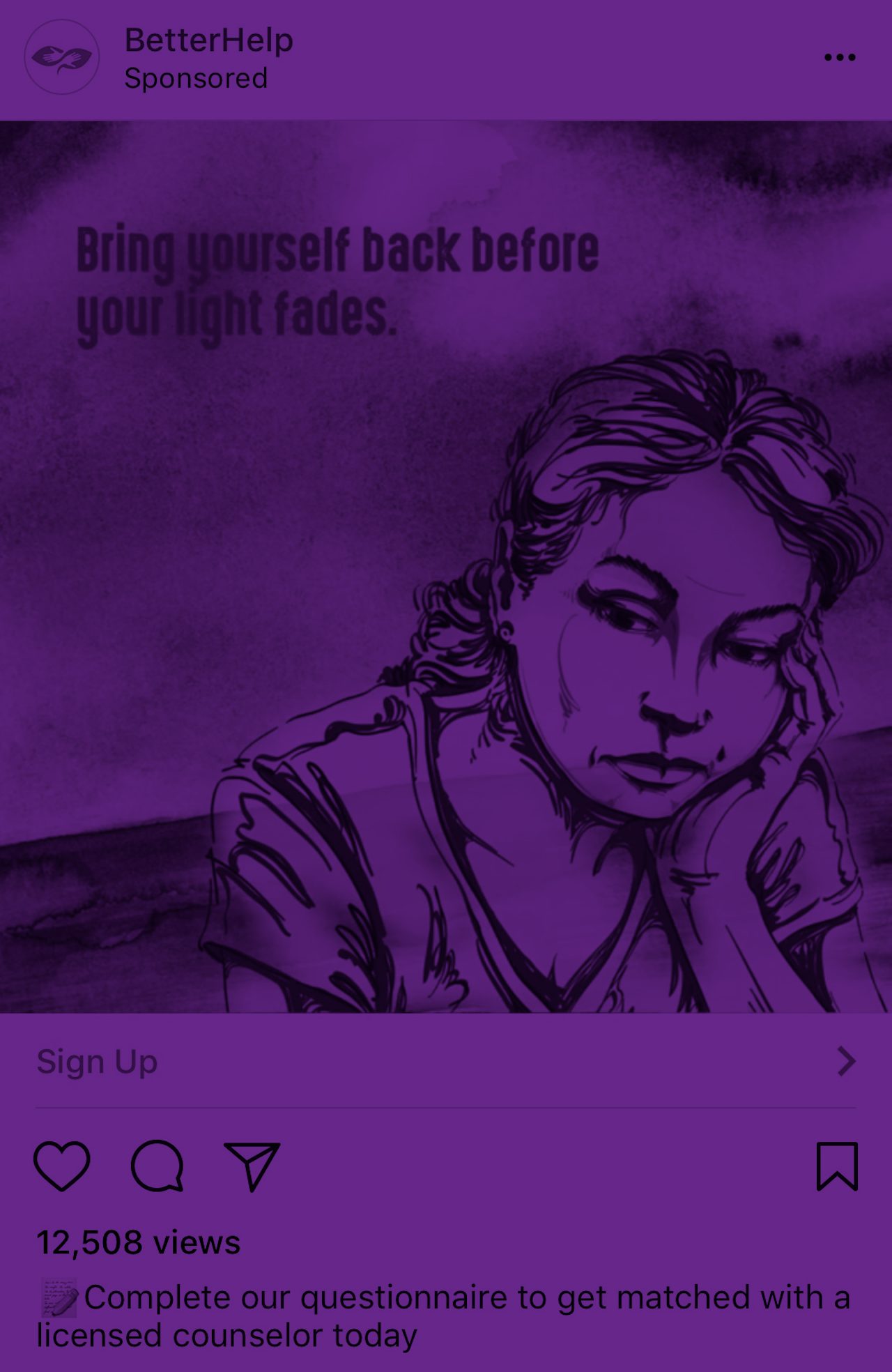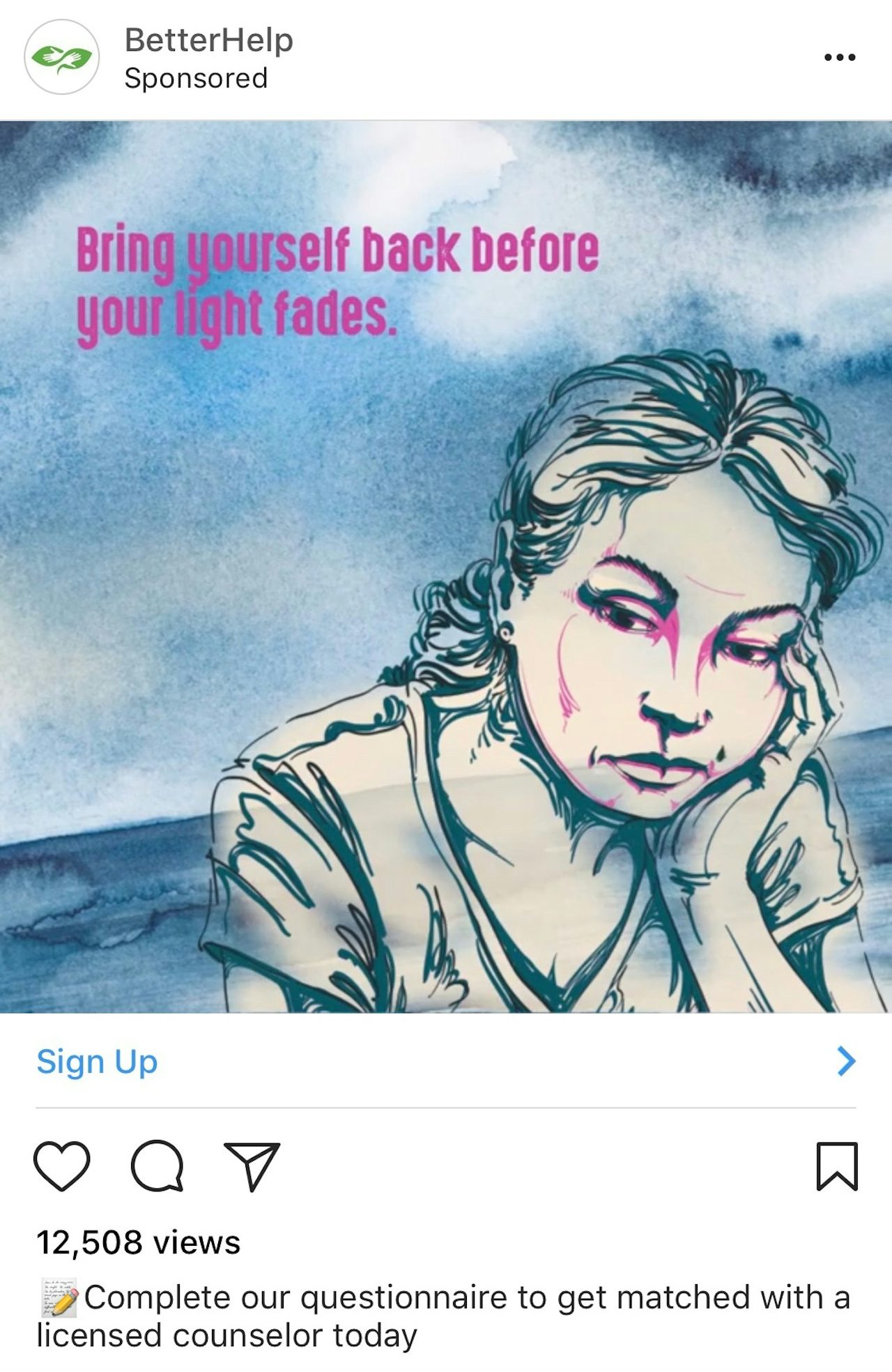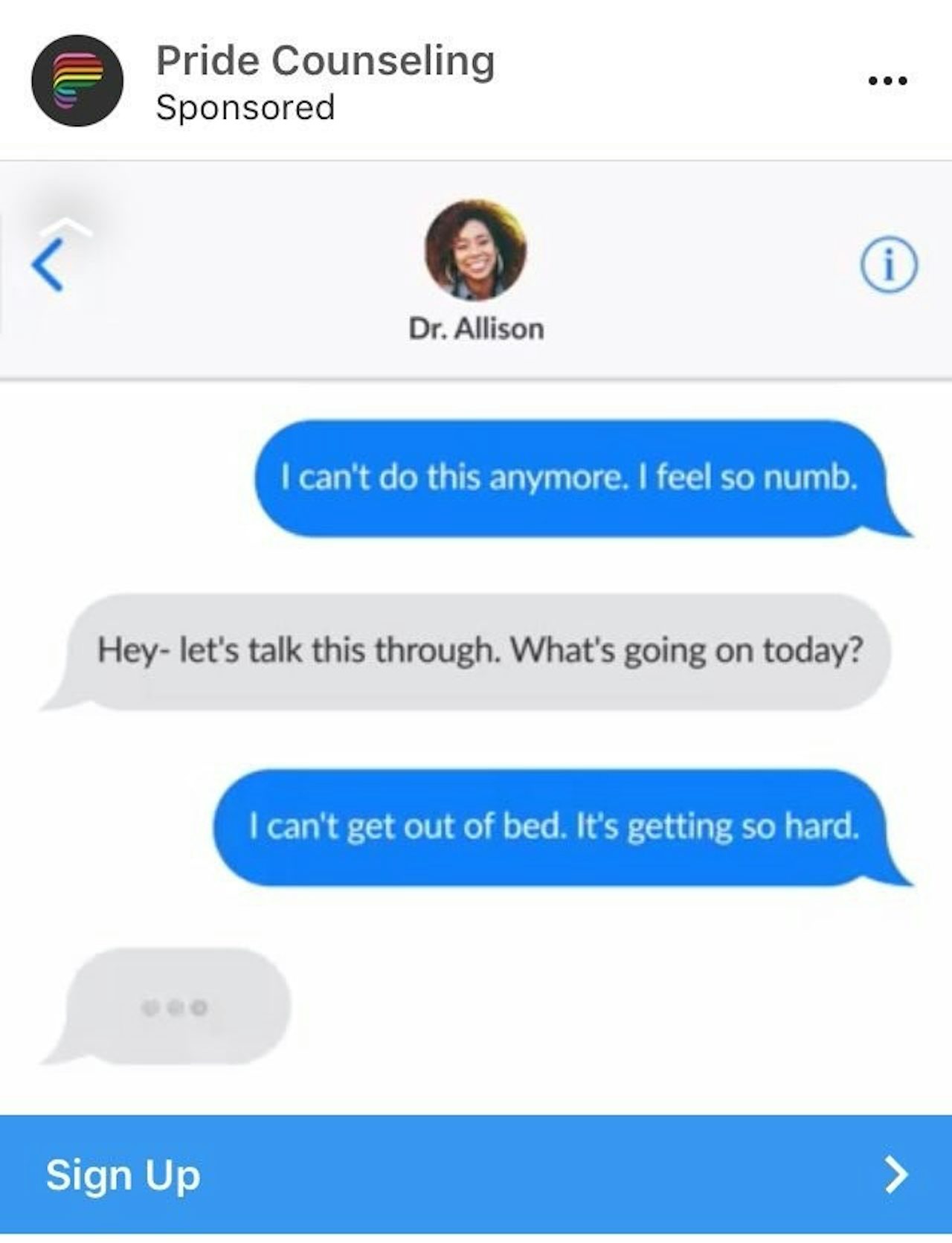I consider myself a pretty happy person. I’ve got great friends, a fun job, and I recently balled out for my very own espresso machine. I’ve pretty much got it made. However, none of that seems to matter to Instagram.
For the last eight months or so, the photo-sharing app has been serving me a series of oddly specific ads, all of which follow more-or-less the same format: “Bring yourself back before your light fades,” they’ll say. “Help is just around the corner.” The text is awkwardly inserted over a horrendously drawn cartoon girl crying her eyes out (almost always in bed). Sometimes a similar message will be presented over a series of (unfortunately animated) faux-iMessages: “I can’t do this anymore. I feel so numb,” or “I can’t get out of bed. It’s getting so hard.”
It’s become increasingly apparent that Instagram thinks I want to kill myself, and I’m not entirely sure what to do about it.
Let me just take a brief moment here to say: I do not want to kill myself. (However, if you do, you should definitely call the National Suicide Prevention Lifeline at 1-800-273-8255, as suicide is not a laughing matter.) This is not to say I’m the poster child for perfect mental health. Like (I assume) many people who spend the majority of their waking hours in this hellhole we call The Online, I struggle with a combination of anxiety, depression, and ADHD. Yet, for some reason, Instagram thinks differently.
After at least eight months of these ads, I couldn’t handle it anymore. How did Instagram know I’ve struggled with mental health issues to begin with and why would it think they’ve gotten worse? I’ve seen a psychiatrist for years, but never a therapist — and I definitely haven’t been looking for one recently — so why all the ads for online counseling? Also, how the hell would it know to target me with LGBTQ+-specific counseling services? Sure, I’m bisexual, but I only acknowledged this myself last year, and have literally only told three or four people in person. (Congrats dear reader, you’re number five. Please keep this between us and not my immediate family members!)
Of course, the ostensible reason is ad-tracking. Facebook (Instagram’s parent company) has been practicing online interest-based advertising — a numbingly boring combination of words that essentially means it generates ads based on your web browsing history and offline activity — for at least five years now. It’s part of the reason that that pair of shoes you looked at on Urban Outfitters for like five seconds last month continues to haunt you from the sidebar; basically everything you do online (yes, even the bad and embarrassing things) is quantified, categorized, and used to create a hyper-specific profile for advertisers.
This could potentially make sense, as I have made many a ridiculous Google search (e.g., “anxiety disorder random sobbing,” “depression anhedonia frequency,” and so on) in some of my weaker moments, and even though I use Incognito Mode when making stupid choices online, that information can still be collected (and sold to advertisers) by my ISP.
However, there’s one issue: I opted out of Facebook’s online interest-based advertising (which you can and should do yourself by clicking here) well over a year ago, so I definitely shouldn’t still be seeing these sort of targeted ads on a Facebook Company like Instagram, right?
As logical as this would sound, I’m guessing it’s wrong. As you can see from the above screenshot, I have all of the available Facebook ad setting options turned off. Yet, if I click to expand the box for online interest-based ads, there’s this:
The description provided states that even if I disable online interest-based ads, I’ll still receive targeted ads based on my activity on Facebook, and, I assume, the Facebook Companies (Instagram, WhatsApp, Oculus, CrowTangle, etc.). Meaning, if I interact more with pages and groups related to, let’s say hiking, I’ll probably see more hiking ads. Facebook collects and compiles the information they’ve gleaned about user activity into a section inoffensively named “Your Interests.” This section is divided into a number of categories (news and entertainment, business and industry, people, technology, and so on), wherein which a bunch of cards sit representing the things Facebook thinks you’re interested in.
Hidden deep within a partially-hidden category called “Other” was a box labeled “Therapy.” “About Therapy,” said the text box that appeared when I moused over it. “You have this preference because you liked a Page related to Therapy.” This read a little oddly to me, as I was pretty sure I had not done that (or at least, not explicitly), nor would I ever. Regardless, I scrolled through all of my liked pages to see if anything fit the “I’m really interested in therapy!!!” bill — nada. My best guess is that Facebook either got this data from one of the many, many, weird Facebook groups I’m in; added it based on some sarcastic comment I made while using the app; or used some fancy algorithm to extrapolate it from some other unrelated page I liked.
However it got there, it’s gone now. I clicked the remove button and away it went. Hopefully those Instagram ads will follow.






